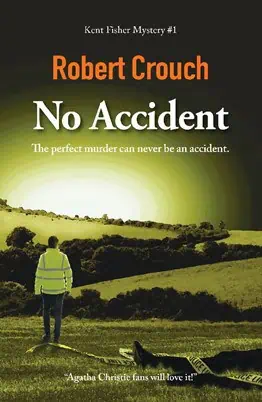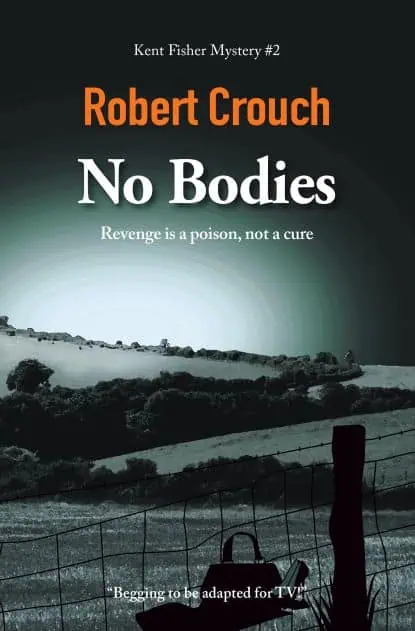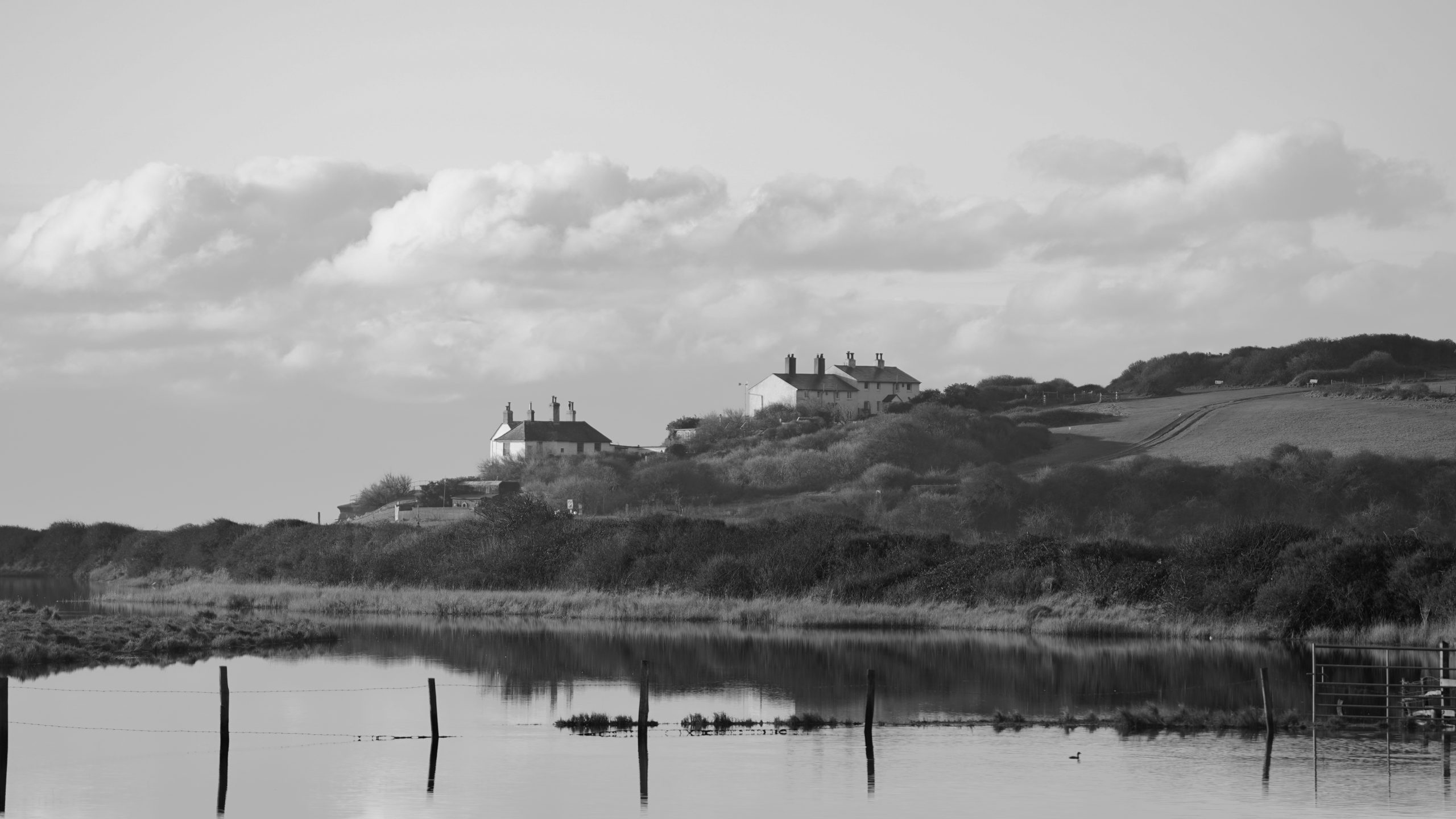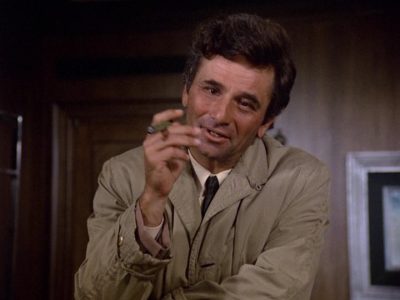
Why I Wrote No Accident
When you set out, you never quite know how things will turn out.
I wanted to create something new, something different and exciting to entertain murder mystery readers. No Accident, the first book in the Downland Murder Mystery series, was actually the third book I wrote, featuring my sleuth Kent Fisher.
The first novel wasn’t quite good enough. It led to a second, No Bodies, which was intended to be the first book in the series, but couldn’t be.
Picture the scene. Kent Fisher is approached by an old family friend, whose wife has been missing for a year. When asked to investigate, he responds by saying, “Who you think I am, Hercule Poirot?”
Exactly. The guy’s an environmental health officer (EHO), who inspects restaurant kitchens to make sure they’re safe and meet hygiene standards. While he has most of the skills needed, he’s no private investigator.
So why does the family friend ask for his help? Kent found a place where he believed drugs were being grown and helped the police close it down. This is the total of Kent’s investigatory experience. He’s dealt with some complex problems in his job, but murder’s not one of them.
I had this image of someone popping into the town hall and asking to see an EHO to report a murder.
No, it didn’t work for me either.

I had to establish Kent as a serious investigator. In other words, I had to write a prequel, which turned out to be a weightier tome than No Bodies.
The story also had to mesh into the start of No Bodies or I’d need a new second novel as well.
How do you give an ordinary person a murder to solve?
You could make it personal. A relative or close friend has been killed/or accused of murder.
Kent could witness what he believes to be a murder, but the police don’t believe him, or can find no evidence of a crime. (Actually, that’s not a bad idea for a novel, even if it has been done before.)
The answer turned out to be closer to home than I realised. While driving across my stunning South Downs district between inspections, my thoughts turned to a fatal workplace accident I’d investigated a few years before.
If you don’t know, EHOs investigate accidents in certain workplaces as part of their role to enforce health and safety standards. All I had to do was create a murder that’s disguised as a work accident. Kent goes to do his job, begins to get suspicious as he investigates, and finds he’s uncovered a murder.
Simple.
Not quite. The story needed a lot more to make it viable and credible. No Bodies, the second novel, had already set up a backstory where Kent ran an animal sanctuary in his spare time. His parents belonged to the landed gentry, but he was more working class, for reasons I won’t go into here.
In other words, conflict at home, a sanctuary he never has enough time for, and a father, who’s a government minister, offer all kinds of possibilities. Have the accident at a leisure park that Kent and his environmental buddies tried to prevent, and there’s more conflict with the millionaire owner of the said park.

All these conflicts and side issues add to the complexity of the story and the motivations of the main characters. We have a David and Goliath battle between Kent and the wealthy park owner. We have rifts at home, family secrets and lots more.
But best of all, we have an ordinary man, drawn into a murder investigation. Even he doesn’t believe it to start with.
It’s a perfect murder, which is only the start of his troubles.
With the odds stacked against him, pressure from his family and the park owner, you’d forgive him for crumbling.
But his sense of justice and fair play won’t let him walk away, despite the risks to himself and those closest to him. This deep set characteristic runs through Kent like a rod of steel. It’s based on my own experiences of injustice and unfairness that I suffered in my youth.
For instance, while delivering newspapers one morning when I was 14, a lorry cut across the road and knocked me off my bike. I was unconscious in hospital for four days with head injuries, two broken thumbs and various cuts and grazes.
An elderly woman saw the accident and told the police the lorry driver was at fault, hitting me. But she refused to give a written statement, so the police wouldn’t prosecute the driver, who claimed I rode into his lorry.
I vowed then, if I ever witnessed wrong doing, I would step forward, report it and be a witness if needed. This may even be the reason why I chose environmental health as a profession, as a lot of it is about protecting the public, enforcing laws when needed.
I was also a bit of a misfit at school. My father died when I was eight, which meant we had almost nothing. We were poor, which isolated me from the other middle class children. What they saw as normality often looked like privilege to me.
Being poor was an unfairness I’d never asked for. But it gave me a lot of other strengths to compensate – resourcefulness, determination, resilience, creativity and a desire to do better. Education did the rest.
All these issues are mirrored to some extent in Kent’s childhood. He was removed from his gentrified parents when he was seven, and moved 300 miles away. You’ll have to read the books to find out why, but being wrenched from the life he knew, feeling alone and having to cope with little or no support, were issues I wanted to explore with my character.
Ironically, these issues have to be addressed in considerably more detail in the 10th novel of the series when a murder takes Kent back to his childhood in search of clues and answers.
Finally, being a fan of Miss Marple and Poirot, I wanted to write a classic whodunit to pay tribute to Agatha Christie.
I envisaged my story on TV, shown on Sunday evening at 8 o’clock. It would be family viewing, but still complex and realistic.
The beautiful South Downs setting for the book would look wonderful on TV with its rolling hills and chalk coastline. The sexual tension between Kent and his assistant, Gemma, offers a promise of romance down the line. Kent’s one liners and irreverent take on life bring an injection of humour.

But perhaps most important of all to me, Kent would be a contemporary sleuth, not burdened by trauma like nearly all the detectives and sleuths you come across in today’s crime fiction.
Kent’s a man who cares about the environment, wildlife and the way he lives, bringing a distinct and different approach to the familiar murder mystery novel/whodunit.
You can learn more about the books, characters and inspiration behind them when you join my Readers Group.



